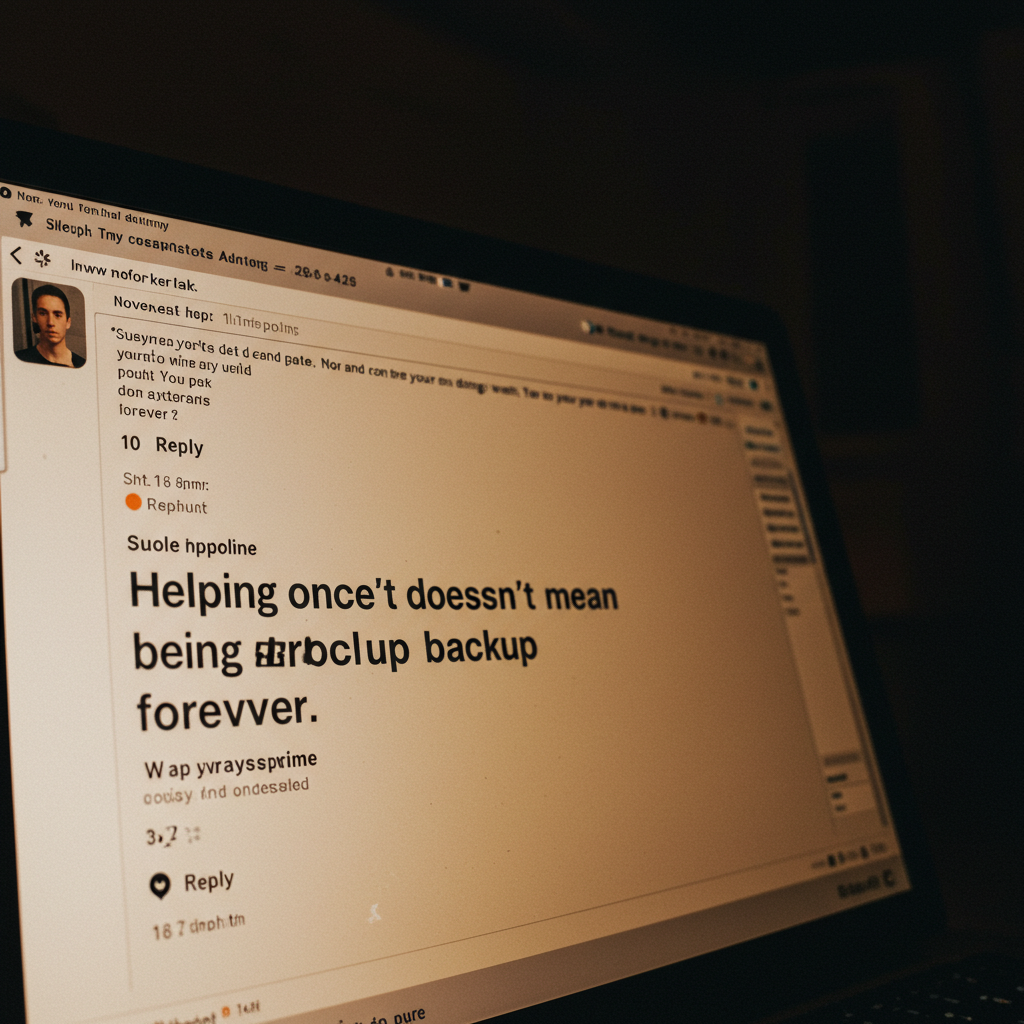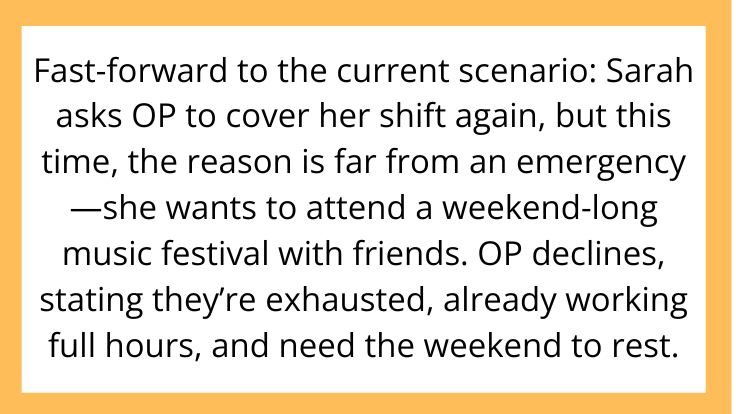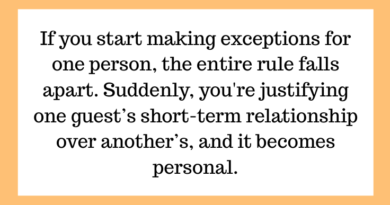Am I the Jerk for Refusing to Cover My Coworker’s Shift After She Skipped Work for a Party?
It’s one thing to help a colleague in need. It’s another when your kindness gets taken for granted—especially when you’re expected to pick up the slack for someone’s avoidable absence.
That’s the situation a Reddit user recently posted about in the r/AITAH community, where the lines between workplace responsibility and personal boundaries blurred. What started as a simple “Can you cover for me?” quickly spiraled into a heated office dispute, emotional manipulation, and the question: Am I the jerk for saying no?
The Setup: A Favor Asked, A Favor Denied

The Original Poster (OP) works in a high-stress customer service job where covering shifts isn’t just inconvenient—it’s exhausting. A few weeks prior, OP had swapped shifts with a coworker named Sarah when she had a family emergency. OP didn’t think twice about it.
Fast-forward to the current scenario: Sarah asks OP to cover her shift again, but this time, the reason is far from an emergency—she wants to attend a weekend-long music festival with friends. OP declines, stating they’re exhausted, already working full hours, and need the weekend to rest.
That’s when things went downhill.
Sarah became upset, calling OP selfish and reminding them about the previous time OP was helped. Other coworkers began to weigh in, and suddenly OP was being painted as the bad guy in the office.
When Does a Favor Become an Obligation?
The Fine Line Between Helping and Enabling

Helping a coworker once doesn’t create a contract for indefinite assistance. Yet, that’s how Sarah treated it.
What OP did—stepping in during a family emergency—was an act of compassion, not a subscription to future inconveniences. The fact that Sarah expected another favor for non-essential reasons (like a party) crossed the boundary from occasional help to entitled behavior.
Office Culture and Emotional Manipulation

One major theme that emerged in the Reddit discussion was how toxic office dynamics can develop when emotional manipulation is mistaken for camaraderie.
Some coworkers viewed OP’s refusal as selfish, simply because they had helped once before. But workplace goodwill shouldn’t be weaponized. Respect goes both ways—just because you can help doesn’t mean you must, especially when your time off is equally important.
Respecting Boundaries in the Workplace

Time Off Is Not a Luxury—It’s a Right
In many industries, employees are overworked and underappreciated. Time off becomes sacred—a chance to decompress and recharge. So when someone asks you to give up that time for their leisure, it sends a clear message: “My fun matters more than your rest.”
OP’s weekend wasn’t filled with urgent obligations or travel plans. It was just rest. And that’s reason enough to say no.
Fairness Isn’t Always Equal

Another nuance that came up in this story is how people confuse fairness with reciprocity. OP helped during an emergency. Sarah expected the same when she wanted to party. But not all reasons carry the same weight.
The idea that “you owe me” only works when the circumstances are equally burdensome—or at least respectful of each other’s limits.
What the AITAH Community Had to Say

Reddit’s response was swift and supportive.
“Helping once doesn’t mean you signed up to be her backup forever.”
“She’s abusing your kindness, not appreciating it.”
“There’s a difference between covering an emergency and enabling irresponsibility.”
Several commenters also pointed out that Sarah could have easily made arrangements in advance or found someone else, especially since the event was not sudden or unexpected.
It wasn’t OP’s fault that Sarah waited until the last minute or expected special treatment.
The Broader Takeaway: Work-Life Boundaries Matter

This story isn’t just about two coworkers—it’s about a culture where saying “no” makes you the bad guy, even when you have every right to decline.
Stop Guilt-Tripping the Reliable Employee
OP described themselves as someone who “rarely says no” and “usually steps up when someone’s in a bind.” That’s likely why Sarah targeted them again. When you’re dependable, some people stop seeing your time as yours.
That has to change.
Respect in the workplace means valuing everyone’s time equally. It means understanding that being helpful doesn’t mean being available at all times.
Learn to Say No Without Apology
The community overwhelmingly agreed: OP did the right thing by setting a boundary.
If anything, the backlash from coworkers was more concerning than Sarah’s request. It revealed a toxic culture where personal boundaries are disregarded in favor of group expectations.
Saying no isn’t selfish. It’s healthy.
Final Verdict: Not the Jerk

According to Reddit—and many working professionals reading along—OP was absolutely not the jerk.
Helping someone once does not create a lifetime of obligation. Respecting your own time is not a betrayal. And refusing to be manipulated isn’t cold-hearted—it’s self-preservation.
If anything, this story is a reminder that boundaries exist for a reason. Whether at work, home, or anywhere in between, you’re allowed to protect your peace.



